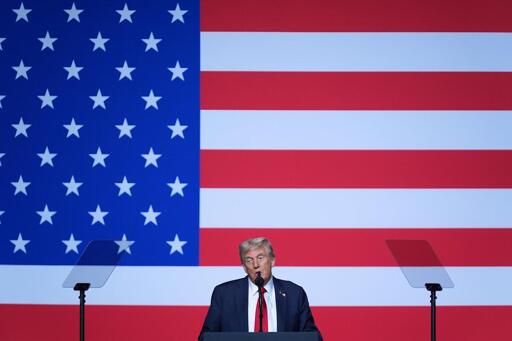“Canada called me a couple of weeks ago, they want to be part of it, to which I said, ‘Well, why don’t you just join our country. You become 51 — become the 51st state — and you get it for free,’” Trump told the assembled officials.
“So, I don’t know if that made a big impact, but it does make a lot of sense.”
Trump also claimed Canada is having “a hard time up there” because “as you know, with tariffs, everyone’s coming into our country.” The president then boasted about investment leaving Canada and other countries and going into the United States, pointing to automobile plants.



And that he didn’t tell this to graduating diplomats, whom would see through this peaceful transition
He told this to soldiers… hmmm….
In this sentence, “who/whom” is acting as the subject of the clause “who/whom would see through this peaceful transition” and thus should be in the nominative case “who.”
Easiest way to know when to use “whom” is to replace the word with “he/him” and follow the “m.” If “he” makes more sense, use “who.” If “him” makes more sense, use “whom.”
And if you’re not sure, just use “who.” It’ll stand out a lot less if it’s wrong, since “whom” is gradually falling out of use.